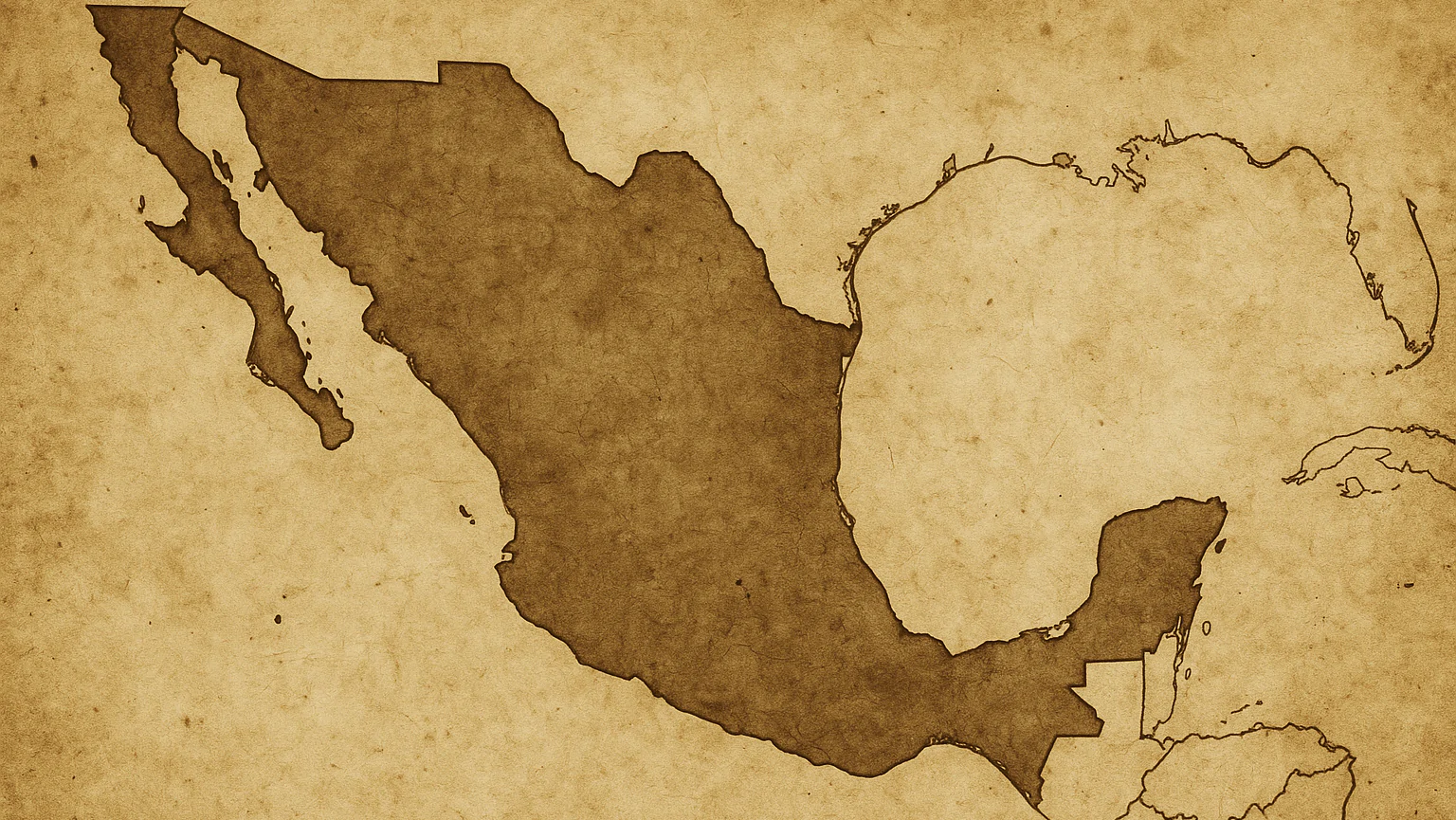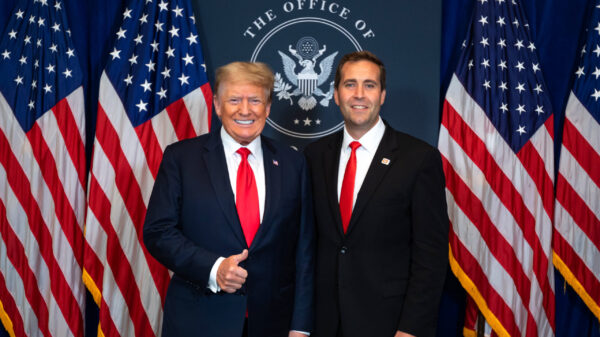If Vladimir Putin’s logic ruled the world, Mexico would have the right to send tanks across the Rio Grande. The case would be simple: Texas once belonged to Mexico, millions of Texans still speak Spanish, and history must be “restored.” Absurd? Absolutely. Yet this is the very reasoning Putin deploys to justify his war in Ukraine—and now it is being indulged by Washington. Over the weekend, President Donald Trump announced he would forgo his earlier demand for a ceasefire before peace talks, granting Putin the power to dictate terms at gunpoint. This is not strategy; it is surrender. Like Neville Chamberlain at Munich, Trump mistakes flattery for diplomacy and compromise for peace. Hitler read appeasement as weakness. So will Putin.
The Texas Revolution itself was no pure fight for liberty. It was opportunism disguised as principle. After Mexico won independence from Spain in 1821, it welcomed Anglo settlers with generous land grants. Many came from the American South, bringing with them language, culture and slaves. By the 1830s, Anglos outnumbered Mexican citizens in Texas. When Mexico tried to reassert control—curbing slavery, halting U.S. immigration, tightening trade—rebellion followed.
In 1835, Antonio López de Santa Anna scrapped Mexico’s federalist constitution and declared dictatorial power. That gave Texian rebels their pretext. They declared independence, defeated Santa Anna at San Jacinto, and forced him to sign treaties at gunpoint. Mexico never accepted the loss.
We still say “Remember the Alamo” as if it were a tale of pure liberty. Mexico remembers it differently: as the start of a theft, when foreign settlers defied its laws and carved away its territory. Both sides hold their banners high, but history is not a deed of title. It cannot be summoned to erase borders.
Texas didn’t stand alone for long. In 1845, Washington saw opportunity, annexed it and lit the fuse of war. President James K. Polk claimed Mexico had spilled American blood on American soil. Abraham Lincoln, then a young Whig congressman, saw through the ruse. He introduced his “Spot Resolutions,” demanding Polk identify the exact place where blood had been shed. Lincoln charged that the president had “unnecessarily and unconstitutionally commenced a war with Mexico.” For this, he was mocked as “Spotty Lincoln,” but history has vindicated him: Polk’s war was conquest masquerading as defense.
Others resisted with action, not speeches. Henry David Thoreau refused to pay a poll tax that funded the war, spent a night in jail, and turned that protest into one of the most influential essays in American history. Civil Disobedience was not abstract philosophy; it was a direct response to the Mexican-American War. Thoreau argued that no citizen should permit government to silence conscience, and that when government demands complicity in injustice, resistance is a duty. His defiance would later inspire Gandhi and Martin Luther King Jr.—proof that even in moments of national triumph, some Americans saw clearly the stain of conquest.
The war ended in catastrophe for Mexico. The Treaty of Guadalupe Hidalgo forced Mexico to recognize U.S. sovereignty over Texas and to cede vast additional lands—California, New Mexico, Arizona, Nevada and Utah—nearly half its territory. To Mexico, it was theft. To Washington, it was manifest destiny. To us today, it should be a warning: if grievance and history justify conquest, no border is safe.
That is the danger of Putin’s logic. If Mexico can claim Texas, why not France demand Quebec? Why not Turkey revive the Ottoman frontier? Why not Italy resurrect the Roman Empire? Once history becomes a weapon, peace becomes impossible.
The modern international order was built to stop this chaos. From Westphalia in 1648 to Vienna in 1815 to the U.N. Charter in 1945, the principle has been the same: borders cannot be changed by force. The rules are imperfect, often broken, but the alternative is perpetual war.
Putin claims he is protecting Russian speakers in Ukraine. Hitler said the same about Germans in the Sudetenland in 1938. Santa Anna claimed Mexico’s heritage entitled him to reclaim Texas. The words shift, the uniforms change, but the excuse remains the same: we are taking what is “ours.”
But history is not a deed of title, and grievance is not a grant of sovereignty. Nations are built on consent, not conquest. Texans today are Americans not because of Santa Anna’s defeat or Polk’s war, but because they have chosen to live, legislate and identify as Americans for nearly two centuries. Ukrainians today are Ukrainians because they have built their own democracy, chosen their own leaders and determined their own future. No neighbor’s nostalgia has the right to erase that.
Putin speaks of restoring Russia’s greatness, but “lost glory” is not a principle of law—it is a mood. Build a foreign policy on moods, and you get 1914: a tangle of slights and passions no statesman can contain. Build it on law, and you give even the smallest nations dignity and security.
That is why Trump’s retreat on demanding a ceasefire is so dangerous. If the aggressor can negotiate while shells still fall, the result is not peace but extortion. A ceasefire is not a concession; it is the minimum condition of good faith. Without it, Putin writes Ukraine’s future with blood still fresh on his hands.
Borders can change, but only through law, negotiation and the consent of those who live within them. Not by tanks. Not by grievance. Not by rulers chasing the ghosts of empires. If we excuse Putin’s rationale in Ukraine, we hand every strongman the same permission slip. China could use it for Taiwan. Serbia for Kosovo. Tomorrow it will be someone else, somewhere else.
The United States carries its own history of conquest—the Trail of Tears, the annexation of Hawaii, the war with Mexico. These are not excuses to tolerate more aggression. They are reminders of what happens when power tramples principle. If there is a lesson, it is that grievances cannot justify aggression, and sovereignty belongs to the living, not to the ambitions of the dead.
If Mexico cannot claim Texas in 2025, then Putin cannot claim Ukraine in 2025. To excuse him is to abandon law for appetite, order for chaos. Once that door is opened, do not be surprised when others, armed with their own maps and memories, march through it. We should not hesitate. Choose law. Choose consent. Choose peace. Anything less is not diplomacy; it is a down payment on the next war.




















































